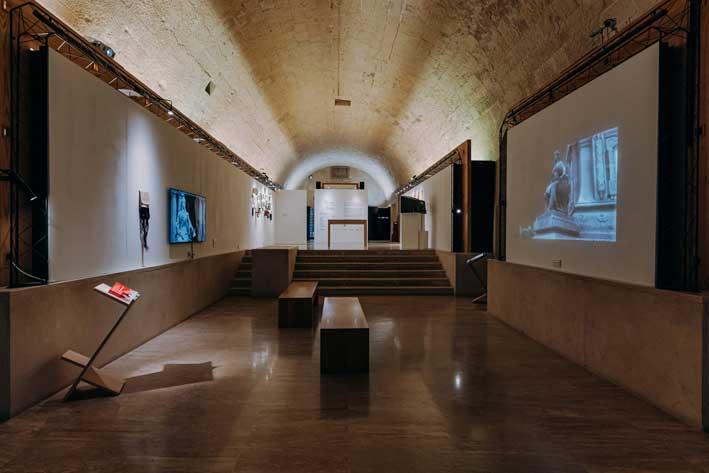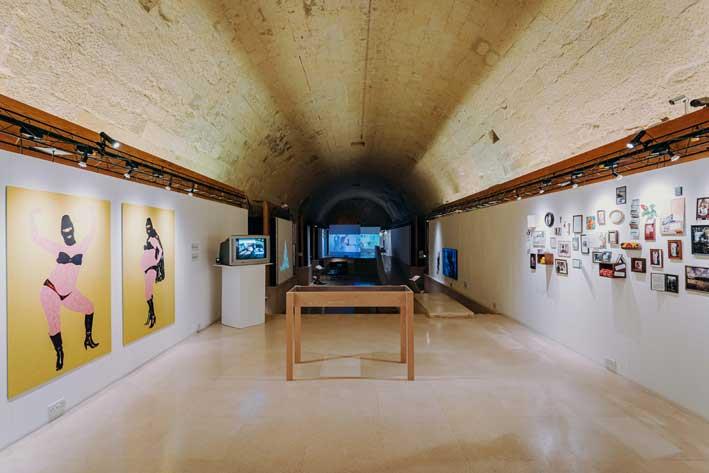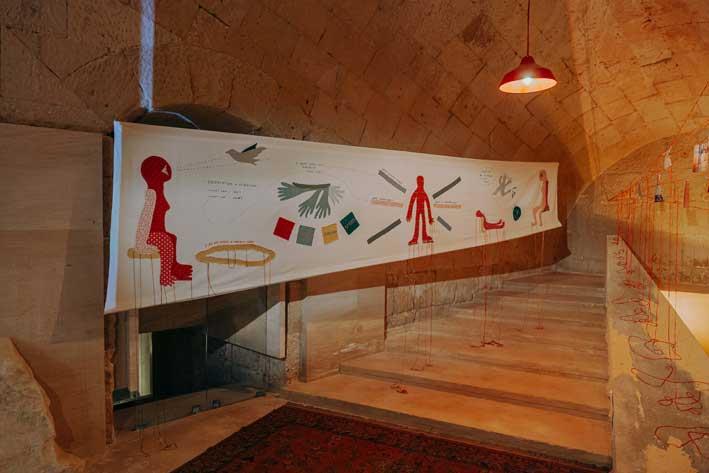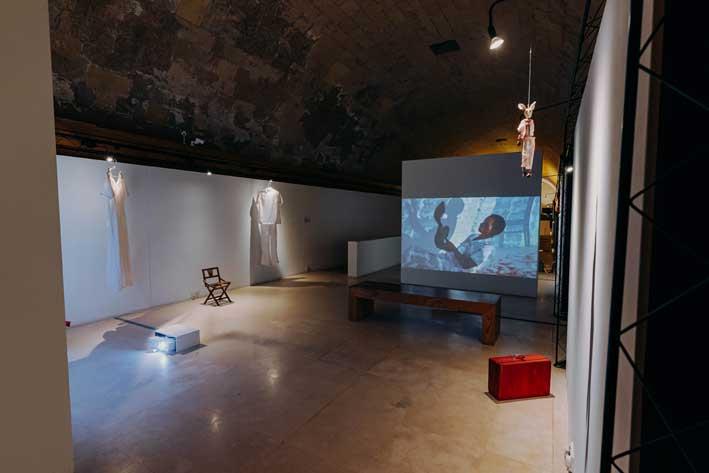When discussing women, oftentimes the term 'extraordinary' is used to outline how many things women achieve in their day-to-day lives. In your case, why did you choose to use the term 'ordinary' when titling your project?
The fact that women's achievements are often framed as "extraordinary" highlights a double-standard that at once glorifies strong women, but also implies that these women somehow stand apart from the other "ordinary" women in the world, who consequently are less worthy of respect. Thus, focusing the rhetoric around feminism on the achievements of individual women, becomes a misguided attempt to justify equality, rather than to acknowledge it as a given.

We would like this exhibition to acknowledge the value of everyday women going about their daily lives. We're attempting to normalise the lives of women and to acknowledge the value of ordinary lives lived. Just under half of the world's 7.9 billion people are women; should they have to be 'extraordinary' to be valued equally?
In your proposal, you mentioned that many of the selected artists will present the different realities lived by women, who often take the role of care-givers, in the wider context of the world's population daily struggles. How will this element influence the narrative of your exhibition?
The exhibition's content has come to represent women's lives between two extremes; revolutionary acts with women literally protesting on the streets and women performing domestic and caring work in the home. However, the two are not as disparate as might be thought; and we see that "ordinary" women have been pushed to extraordinary acts when their rights and lives, and those of their loved-ones, have come under threat.
Take, for example, the Chilean performance piece protesting violence against women Un violador en tu camino that first took place in November 2019 and which since then has been performed in 400 locations in over 50 countries including Mexico, Colombia, France, Spain, the UK, Turkey and the US. We saw women all over the world emerge from their traditional domestic roles to adopt a revolutionary stance, becoming defenders of human rights. Caring is not restricted to domestic or bedside work; fighting for basic human rights is also an intensely caring act. At the same time, care in the traditional sense can be seen as a revolutionary or political act in itself, acting as it does in direct opposition to a value-extraction economy of production and rentability.

This collective exhibition has a variety of artists working in different mediums coming together in one exhibition space. Apart from the mentioned concepts, what other themes will you be tackling in this exhibition?
As collaborators, we have also been working lately on archival themes, looking at archival content, both real and imaginary. With this exhibition, we try to engage an archival lens in order to see the works and the events they encompass in a historical as well as a contemporary perspective. The artworks themselves thus become part of a temporary archive; one which recognises the ordinary lives of women as much as grander hegemonic narratives. By choosing to show these works in particular, we ensure that facts and narratives are not distorted or consigned to oblivion.

To continue on this, how will the duality of women in general - being mothers, as well as activists - manifest itself through the themes?
The question of motherhood is a vast one and is worthy of another exhibition in future. Motherhood, understood in a broader sense as caring in general is not a skill exclusive to women, and it would be over-simplistic to insist on a male-female binary divide, which reinforces stereotypes of masculine and feminine behaviour. And while we can acknowledge the value of motherhood, we can also acknowledge that it is not an essential state for a woman.
Again, we can make a corollary between activism and motherhood; all over the world, many protests and acts of dissent have come from mothers attempting to save the lives of their children. In 1992, exactly 30 years ago, mothers of political prisoners in Nairobi, Kenya campaigned in the city's Uhuru Park for the release of their sons. Facing down police, who were attempting to disperse the protest, the women began to strip naked in anger, cursing their attackers by doing so and eventually securing the release of their children. We need mothers in the world or, as artist Rachel Fallon states, we need mothering people.
The collection of reading material within the exhibition are an extension of the thoughts and conversations put forward by the artworks. Some of the texts have been written in specific contexts and some contain broader, global reflections. We hope that through this reading area, visitors will be able to spend more time with the exhibition's subject matter and philosophy.

Open until Sunday, 13 March at Spazju Kreattiv in Valletta, this exhibition will be complemented with a programme of events and film screenings.
'The Ordinary Lives of Women' features the work of artists Florinda Camilleri and Abigail Agius, Charlie Cauchi, Edith Dekyndt, Katel Delia, Rachael Fallon, Julieta Gil, Syowia Kyambi, Fatima Mazmouz and Francesca Saraullo.
This exhibition has been made possible through a collaboration between Spazju Kreattiv, Unfinished Art Space and Brażża Art Residency. It is supported by APS Bank and the Melita Foundation, as well as Arts Council Malta's Project Support Scheme. It has also received support from the Embassy of France and the Embassy of Ireland in Malta.
For more information visit www.kreattivita.org